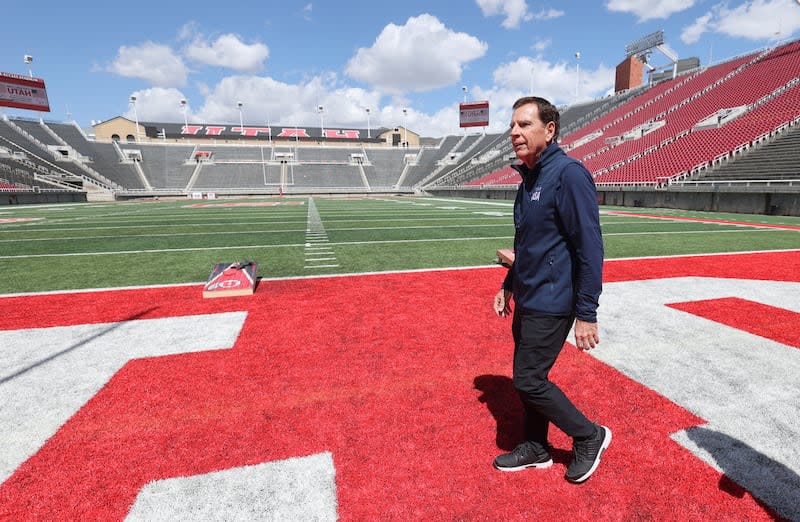From 2002 to 2034, the man who brought the Olympics back to Utah
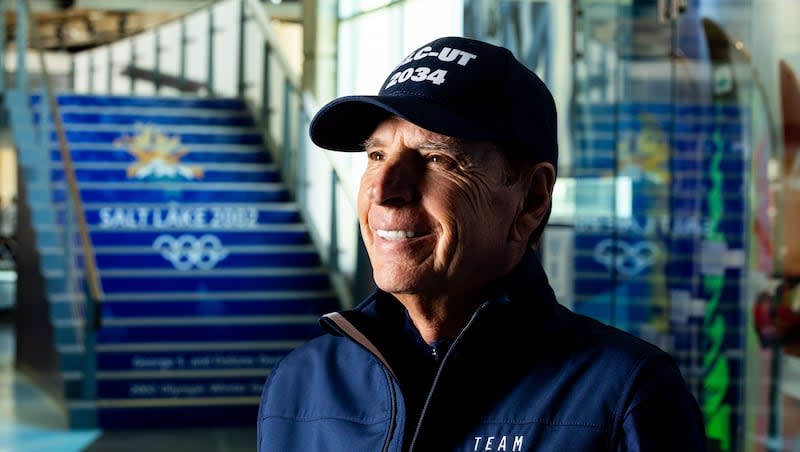
Fraser Bullock was still writing the final checks for the 2002 Winter Games when he started thinking about bringing the Olympics back to Utah. Known as “Mr. Inside” because of his behind-the scenes role as chief operating officer, Bullock, along with Mitt Romney, had overseen what was widely hailed as one of the best Winter Games ever.
Coming just months after the 9/11 terrorist attacks on the United States, Utah’s Games served as a symbol of hope and unity for a world seeking to feel safe again. They were also a boon to Utah, shining an international spotlight on not just the state’s natural beauty, but also on Utahns, who turned out by the thousands to serve as volunteers.
“I was thinking, this was so beneficial to our state and such a wonderful experience for me that I need to give back,” Bullock told the Deseret News. He’d already stepped aside years earlier from a lucrative career, which had allowed him at 41 to semi-retire from the business world, so he could join Romney to run a Games damaged by scandal.
Bullock took over as the leader of the Salt Lake Organizing Committee when the Games ended and Romney, now a Utah senator, returned to Massachusetts to run for governor and later, for president, buoyed by the Olympics turnaround.
Now, more than two decades later, Utah is poised to be awarded the 2034 Winter Games and Bullock, 69, is the volunteer president and CEO of the Salt Lake City-Utah Committee for the Games that’s behind the bid.
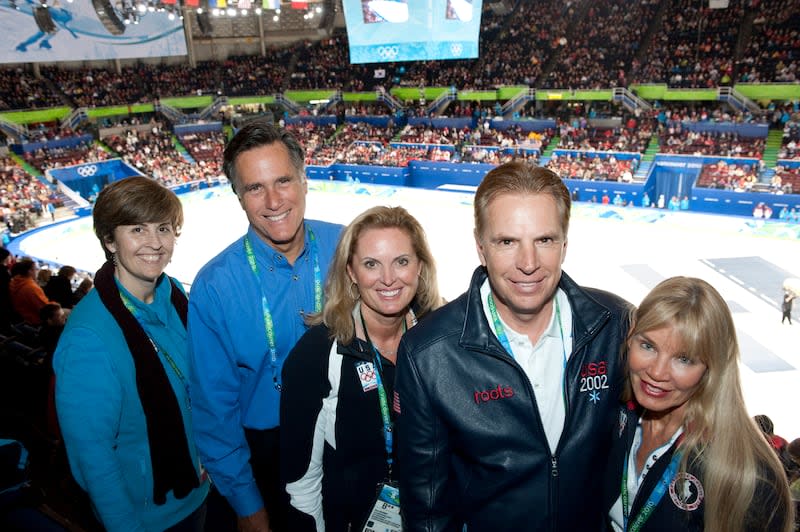
On July 24, Pioneer Day in Utah, he and other state leaders will be in Paris when members of the International Olympics Committee cast the final vote on awarding the Games.
It’s a moment the Canadian-born Brigham Young University graduate has been working toward since deciding that day in 2002 to try to position Utah for another Winter Games.
And it’s a moment that Bullock almost missed, after suffering a “widowmaker” heart attack in the spring of 2015 that nearly cost him his life.
During the six months he spent recovering from emergency surgery to deal with a completely blocked artery caused by genetic blood disorder and in a second procedure, the installation of a defibrillator, Bullock said he focused on deciding what was most important to his life, taking the advice of his son-in-law who told him he now had an excuse to let some things go.
What made the cut? “It was obviously family. It’s how you conduct yourself as an individual. And great causes, where you can make a difference that is valuable for those around you and the community. So I decided to keep pushing on the Games, and continue to sign up for responsibilities that they wanted to give me,” he said.
But the amount of time he spent in the Sorenson Capital offices, the Lehi-based business he co-founded, got significantly reduced, as did the number of corporate and nonprofit boards he served on, putting his life “in a much more manageable position, and much more balanced.” All along, Bullock said, his wife, Jennifer, and their three daughters and two sons were “incredibly supportive” of his choices.
He put aside thoughts of “why me,” after realizing “I’m actually the luckiest guy in the world because I’m alive. I should be dead. So I had a whole different perspective on life and just the joy of being alive.” Now, around to enjoy his 11 grandchildren, Bullock said he lives by a creed adopted by “Fraser’s Flyers,” friends he’s skied with for years and still hits the slopes with regularly.
“One is, ‘Every day is a gift.’ Two is, ‘Enrich relationships with kindness’ and three is, ‘Give meaningful service,’” he said.
At the helm of Utah’s bid effort, Bullock has relied on those words to patiently steer the state through the ups and downs of a new IOC selection process that saw other cities competing for the Games come and go and decisions delayed. He’s expected to lead the organizing committee for a 2034 Winter Games that would be formed following an IOC award.
“Fraser is a legend in the Olympic community, more so than I ever imagined or understood before I became part of the bid process,” Utah Gov. Spencer Cox said. “He is well-respected — and that undersells it. He is more than well-respected. He is revered in Olympic circles. And I feel very confident in saying that we would not have the Games coming back were it not for Fraser.”
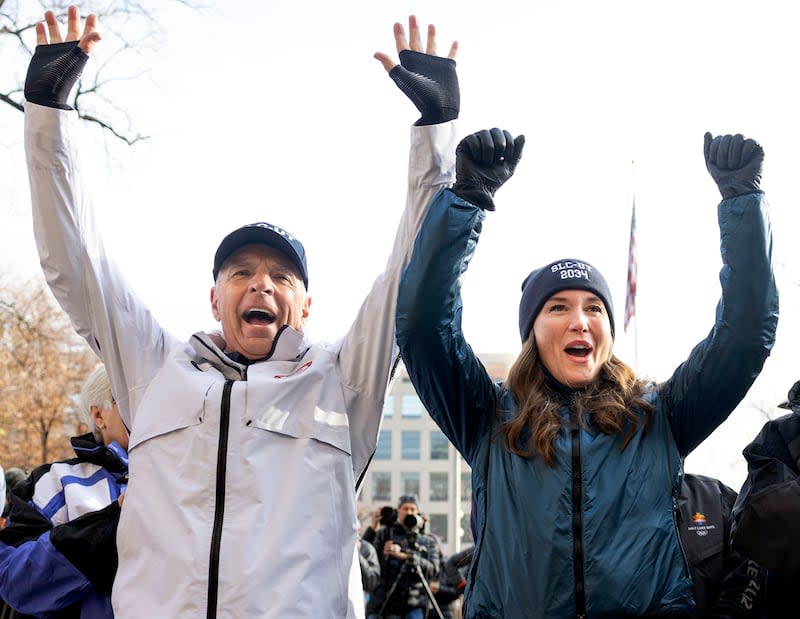
‘In the trenches’ with Olympic officials
Then-IOC President Jacques Rogge, who’d declared the Salt Lake Olympics “superb,” first reached out to Bullock in May 2002 — only months after the close of the Games — to lead a strategic audit of the Switzerland-based organization. Rogge, elected to lead the IOC in July 2001, wanted a detailed evaluation of how well the IOC was supporting Olympic organizers.
“He was new as president. (Salt Lake City) was his first Games. He was very impressed with the work we did collectively. We built a strong relationship together, so he asked for this,” Bullock said of the late Olympic leader. After interviewing IOC staff and others key to the Olympics, that August he delivered an 83-slide presentation seen as laying the foundation for a restructuring.
The assignment, completed out of the public eye, was described at the time by the Los Angeles Times as “a key piece in a wide-ranging mix of reforms up for consideration under Jacques Rogge,” then only the eighth leader of the IOC. It also marked the start of work for Bullock in the Olympic world that continued quietly until he was named to lead the bid committee in 2020.
When the two top bosses of the 2006 Winter Games, in Torino, Italy, were fired by their Italian overseers in early 2005, IOC leaders sent Bullock to pour over the plans, the one time he was paid for his work. IOC leaders sent Bullock to Brazil when preparations for the 2016 Summer Games in Rio de Janeiro stalled, and had him train senior staff for the 2014 Winter Games in Sochi, Russia.
The Italian project paired him up with an IOC staffer, Christophe Dubi, who is now the Olympic Games executive director. As part of the IOC delegation that piled on the praise for 2034 Winter Games plans during a visit to Utah in April, Dubi declared, “You have all it takes. You have the venues and you have the people.”
Bullock said he and Dubi “worked together for about 20 hours a day for four days. It was (an) absolutely intense but very productive” review of Torino’s operations and finances. That time together “in the trenches” solidified their relationship, he said. “We know each well. We trust each other.”
There was a lot that needed to be done to get the Torino Olympics, the first Winter Games after Salt Lake City, back on track.
After arriving late in the day in the Italian city after a long flight, Bullock said he went directly to the site of the speedskating oval. What he found were a few pillars sunk into the ground and a single construction worker on the job despite the venue being one of the most complicated to build for a Winter Games.
With just 10 months to go until the start of the 2006 Olympics, Bullock said one of his key recommendations to the IOC was putting Italian organizers on a “24/7, around the clock” construction schedule. That managed to get the oval finished “in the nick of time,” he said.
Other Olympic roles for Bullock included being named to the IOC coordination commission that oversaw the 2010 Winter Games in Vancouver, Canada, near where he’d lived as a young child before growing up in Calgary. Working closely with Canadian organizers as well as the IOC over the seven-year lead up to those Games was a far cry from seeing Calgary’s 1988 Winter Games on TV.

A Winter Games for Utah — in 2022?
By 2012, the first real chance of another Utah bid for the Winter Games emerged, the result of Bullock and the two top U.S. Olympic Committee leaders renegotiating a disputed revenue sharing agreement with the IOC at meetings in New York; Innsbruck, Austria; and at the IOC’s headquarters in Lausanne, Switzerland.
The USOC — now the U.S. Olympic and Paralympic Committee — had vowed not to put up another American city for a Games until a new deal was in place after New York lost the 2012 Summer Games to London, and then Chicago saw the 2016 Summer Games go to Rio de Janeiro despite an in-person pitch before the IOC vote in Copenhagen by then President Barack Obama.
Bullock played peacemaker at times during the 18 months of talks, relying on his relationships with the IOC to overcome roadblocks. Once a deal seen as better balancing the split was reached, he believed he’d paved the way for U.S. Olympic officials to back Salt Lake City as the country’s candidate for the 2022 Winter Games.
That didn’t happen.
Instead, the USOC chose to go after the larger Summer Games, eventually securing the 2028 Olympics for Los Angeles. The decision was made after a meeting held in the fall of 2012 in New York City. Called by then-USOC Chair Larry Probst, the 20 or so attendees included other U.S. Olympic officials, NBC Olympics boss Dick Ebersol and Bullock.
“I was the one person from Utah there. We were discussing Summer or Winter Games. That’s where I passionately made the case for Winter Games, because we had all the pieces in place to be able to do it again from 2002,” Bullock said. Earlier that year, then-Gov. Gary Herbert had put together an Olympic exploratory committee that was already working on a bid.
Bullock, an adviser to the Olympic exploratory committee, went in knowing that Herbert and other Utah leaders wanted another Games. Like the bid for 2034, their plan was to utilize the expertise and infrastructure from 2002 with the support of the public to stage a privately funded Games.

“We had a candidate all ready to go, whereas for a Summer Games, there was no clear-cut choice,” he said of the case he made for a Utah bid for 2022. “We had an existing team of people who knew the Games and could pull it off and do a good job. ... There was some focus on certainty and reliability.”
Another selling point was that even though more events at a Summer Games can mean more revenue, the Winter Games bring in better TV ratings, thanks to being held when viewers are spending more time indoors and aren’t distracted by summertime activities like family vacations.
At the New York City meeting, Bullock said “there were arguments, good arguments, for both. I thought that that argument for the Winter Games was very, very strong. There was a lot of support in that room for the Winter Games, so I thought we may be trending in that direction. But I was mistaken.”
“I felt we had a really good shot so I was surprised when the USOC went in a different direction. But I understood why,” Bullock said. “They had to make a decision on 2022 pretty quickly because we were headed into 2013 and basically the election is made in 2013, you’ve got two years to prepare and go through the bid process.”
There turned out to be an upside, since the 2022 Winter Games hosted by Beijing were the second Olympics impacted by the COVID-19 pandemic. Bullock said he’s “so grateful to this day that we didn’t win the 2022 Games. So sometimes you get very lucky or blessed or whatever you want to call it. That would have been immensely challenging.”
At the time, he said that despite his disappointment, he recognized “winning the opportunity to host the Games is a long play with a capital ‘L.’ You’re going to face obstacles, twists and turns in the road, and when you face one of those ... you just need to adapt and move forward. So we quickly adapted to say, ‘OK, we’ll go after the Summer Games, whenever that is.”
It would take more than six years, until December 2018, for Salt Lake City to be named America’s choice for a future Winter Games by the USOPC. That became a bid to host when needed, in either 2030 or 2034, although bidders settled on 2034 as their preferred date to avoid competing financially with the 2028 Summer Games in Los Angeles.
The IOC’s new, less formal selection process saw longstanding bids from Sapporo, Japan, and Vancouver, Canada, falter due to a lack of support and a delay on advancing would-be hosts that allowed for new competition, from Sweden, Switzerland and France. Late last year, France’s French Alps bid for 2030 and Utah’s bid for 2034 were both named preferred hosts.
While that milestone was celebrated by Bullock and other bidders, it wasn’t until mid-June that IOC leaders moved both bids to the final vote, coming right before the start of the 2024 Summer Games in Paris. Only then will Bullock know for sure he’s fulfilled a goal set so long ago.
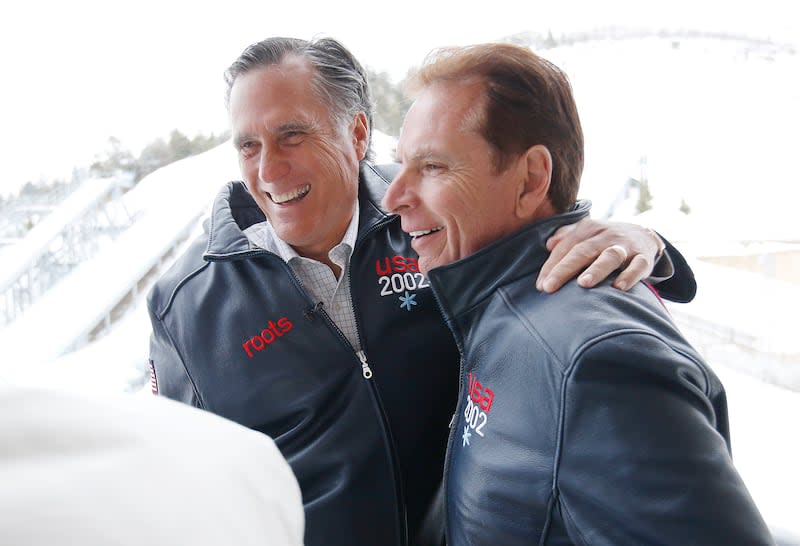
‘Time to be of service’
Like most people, what Bullock knew initially about the Olympics came from TV. One of the most vivid Olympic memories for the man who became an American citizen after marrying a BYU classmate he met on a “home run” of a blind date, was tuning into the “Miracle on Ice,” where the U.S. men’s hockey team beat the then-Soviet Union at the 1980 Winter Games in Lake Placid, New York.
“I was a big hockey fan, so watching Team USA win in 1980 was a seminal moment,” he said, one marked at the 2002 Olympics, when those same American hockey players reunited to light the Olympic cauldron during the opening ceremonies held at the University of Utah’s Rice-Eccles Stadium.
Trading a successful business career for Olympic organizing wasn’t an easy decision for Bullock, the first MBA graduate from BYU sought out by Boston-based consulting firm Bain & Company. There, as a “lowly consultant just trying to figure things out,” he met Romney, who was a vice president.
When Romney founded Bain Capital a few years later, Bullock joined him at the private equity firm that turned around troubled businesses. By 1987, he had moved on to a series of corporate posts. Within a decade, he’d achieved the “perfect lifestyle” as a partner in a new Utah venture capital firm, able to work six months a year and spend the rest of his time with family.
Then Romney reached out for help with the Salt Lake Organizing Committee.
It was early 1999, soon after Romney was hired, and the state was struggling to recover its reputation amid the worldwide bribery scandal surrounding more than a million dollars in cash, gifts, scholarships and other incentives Utah bidders gave to IOC members years earlier to secure their votes in the race to host the 2002 Winter Games.
Organizers, meanwhile, faced as much as a $600 million financial shortfall. International and domestic sponsorship revenues, key sources of revenue for the privately funded budget, had dried up. The budget would have to be overhauled, with cuts such as replacing the lavish catered meals IOC members expected during the Games with hot dogs and similar fare.
Although Romney was being urged by Utah leaders and U.S. Olympic officials to find someone with sports experience for the No. 2 spot at the organizing committee, he turned to Bullock, who, like him, was a member of The Church of Jesus Christ of Latter-day Saints.
“I had worked with him in a prior career and seen his extraordinary management skills,” Romney said of choosing Bullock. “I knew he was a person of unquestioned integrity, transparency and diligence, but I also knew he had the organizational skills that we badly needed.”
The “superb management and operational experience” Bullock had honed in the business world added to what Romney said was a strong team of sports professionals put in place at the organizing committee before the scandal. “We had Olympic experience. What we needed was management and leadership,” Romney said.
Even though he wanted Bullock by his side, Romney didn’t think he’d be interested.

“I looked around because Fraser seemed unavailable,” Romney said, recalling how his wife, Ann, finally pushed him to contact Bullock.
“I was on the phone with Ann, telling her the extent of the challenges I now found we faced. And she said, ‘Who do you want to help you?’ I said, ‘Well, there’s a guy I know who’s moved to Utah and started his own venture capital company and he’s just gotten underway. He’d be fantastic ... but there’s no way that he would leave his new company. It would be impossible.”
Still, Romney followed his wife’s advice and asked Bullock to take the job. But it took a month for Bullock to accept.
“I had to be all in to do it. But I also knew we had a monumental task ahead of us. I knew nothing about the Games other than watching them on TV,” Bullock said. He remembered telling Romney he was “looking for someone semi-suicidal” to take charge of the organizing committee’s finances, given the damage done by the scandal and the ongoing investigations.
“That was the time when everything was pretty dark,” Bullock said. Especially troubling was the effect of the bribery allegations on the state he’d first called home in 1972 as a freshly minted high school graduate arriving to attend BYU.
“It felt like a stain on Utah’s reputation,” he said of the scandal that surfaced in late 1998 and eventually resulted in reforms to the Olympic site section process. “Of all the places in the world, Utah tries to live at the highest levels of integrity. This was completely out of sync.”
At the start of their conversation about the need for a chief operating officer, a job that later expanded to include chief financial officer duties, Bullock offered to come up with some candidates but Romney had countered, “What about you?” They agreed Bullock would spend some time at the organizing committee offices.
What ultimately convinced Bullock to take the job was something his late father said.
“It was a real tug between what to do because I’d have to leave my career and leave the extra time I had with family. I knew it would be committing 100% of my life to this endeavor. I wrestled with it a lot, talked to a lot of people, to family. Finally, I remember sitting on a couch in the family room with my parents across from me,” he said.
“And my dad, Evan Bullock, said, ‘It’s time to be of service.’ And that was it. I knew I had to do it.”
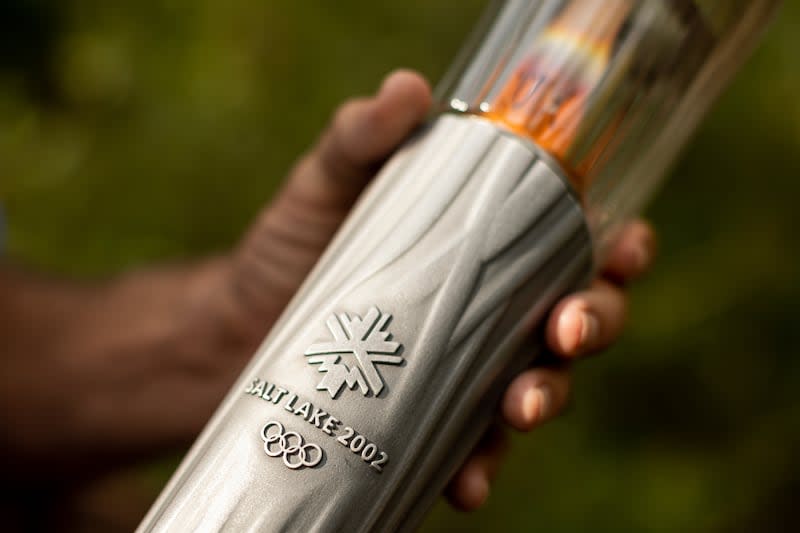
The bottom line: ‘Unifying humanity’
At the Salt Lake Organizing Committee, Bullock ended up finding more than another business that he could help put back together.
“When I started in early 1999, it was an immensely challenging, difficult job that required all of my energy and all of those involved to try to right the ship under Mitt’s exceptional leadership,” he said. For a while, though, his new job seemed like “to some degree, a sacrifice” because of the time it took away from his family.
That changed in the year leading up to the 2002 Winter Games. While Romney was the public face of the Olympics, Bullock had become known as “Mr. Inside,” the behind-the-scenes leader overseeing finances as well as some 40 different operational functions, like a fleet of 5,000 vehicles.
“I could see it all coming together, all the hard work, the team thriving in the work,” Bullock said. “I could feel and see that our Games were going to be highly successful. It was an immense sense of satisfaction, going from starting with a very difficult situation to being part of something that was just wonderful every day.”
He shared his confidence in the organizing committee’s readiness to welcome the world with Romney in a conversation shortly before the Sept. 11, 2001, deadly terrorists attacks on the United States. After lifting the organizing committee out of the “deep hole” left by the scandal, “we got knocked down again with 9/11,” Bullock said.
What helped him pick up the pieces after the world-changing event was his newfound belief in what’s known as the Olympic movement, the effort spearheaded by the IOC to promote peace through sports around the world. No longer was his work just about balancing budgets and meeting financial goals.
“The bottom line of the Games is not just an economic bottom line,” Bullock said. “The bottom line of the Games is unifying humanity.”
That may never be more evident than it was after 9/11, which left Utah’s Olympic organizers “heartsick and heartbroken” but determined to hold the Games.
The Olympic Games after 9/11
Bullock said that Tuesday morning, he was driving to the organizing committee offices in downtown Salt Lake City, unsure what was happening. “Everybody was confused then. I get to the office and things then are on television and you can see what’s going on. Mitt is in D.C., trying to get extra money for security.”
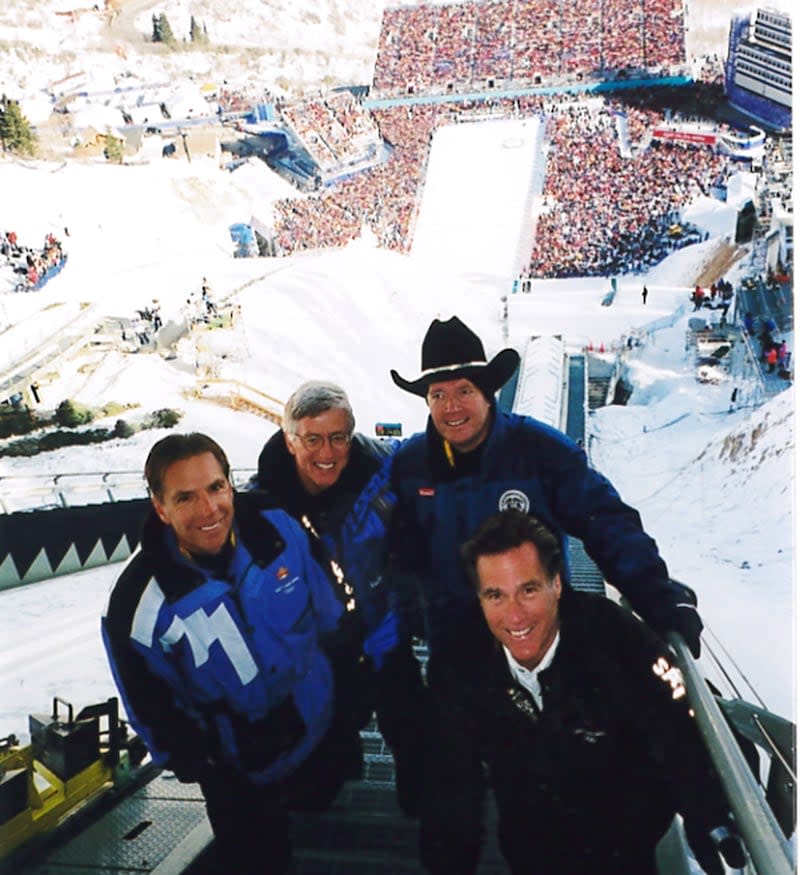
When Bullock reached Romney, “he’d just driven by the Pentagon and he had smoke billowing into his car. We got on the phone with (then director general) Francois Carrard from the IOC ... because there were people saying, ‘Well, how can you host the Games in this environment?’ And we said we knew the Games had to go on and we also knew they would play a part in the healing process.”
By Friday of that terrible week, he’d assembled top officials from local, state and federal law enforcement to determine where security upgrades were needed. “I spent three days locked in a room with one of our people, going through every element of our security plan. What we realized is we had a great security plan.”
They still came up with nearly two dozen additions, including from the U.S. Secret Service, which oversees security for national events. The next several months were spent securing more federal funding for security and reassuring teams, sponsors and ticket holders who were concerned about coming.
In the end, what was the first major international event held after 9/11 was deemed one of the most successful Winter Games ever. The opening ceremonies were hailed for the healing power of seeing the same tattered American flag recovered after the attack from the rubble of the World Trade Center in New York City.
American athletes reverently carried the flag into the University of Utah’s Rice-Eccles Stadium, which fell silent. The Tabernacle Choir then sang the national anthem and when they reprised the last line: “O Say does that star-spangled banner yet wave o’er the land of the free and the home of the brave,” a gust of wind lifted the flag in the hands of the athletes.
Bullock said while no movement is perfect, the underlying value of the Olympics “is unique and important” and speaks to his faith.
“The work we each do in life ties into whatever beliefs we have. I have core beliefs of bringing people together, being kind to people, having unity. When I look at the faith that I enjoy, we learn great lessons,” Bullock said, citing the teachings of President Russell M. Nelson of The Church of Jesus Christ of Latter-day Saints about building bridges of understanding and building unity.
“That resonates with me as an individual. And it certainly reinforces how I believe I can contribute in our society,” Bullock said, adding, “I feel so fortunate that Mitt picked up the phone to invite me in to something where, for me, I could expand my life’s purpose.”
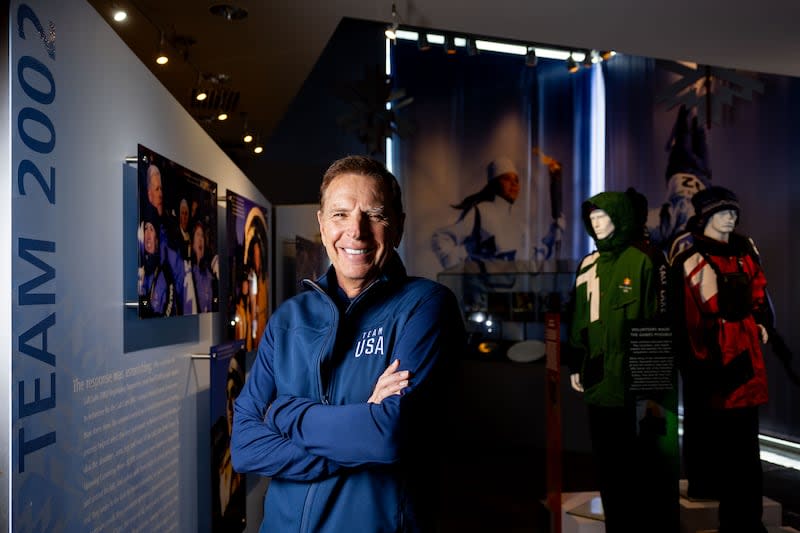
What’s next if the 2034 Winter Games come to Utah?
Ask him about what his role will be if the 2034 Winter Games come to Utah as everyone believes they will at this point, and Bullock has little to say.
“It’s yet to be determined. I’ll be around to help. Whatever it is, I’ll be a volunteer. I”m not going to take any pay,” he said, adding that while he’s completely focused on winning the bid, “I certainly hope to be involved because I built significant relationships over the years, a deep knowledge base of the Games.”
No matter what title he’s given, Bullock said he and others need to share what they’ve learned about hosting a Winter Games from 2002 with the next generation of Olympic leaders. “Younger blood, new energy, a new generation where we can pass this information along to them is a great combination for success.”
Others, though, see Bullock as the obvious choice to lead a future organizing committee.
“Fraser Bullock is probably the best prepared of any Olympic CEO in history,” Romney said. “That sounds like hyperbole, but look, he did a fabulous job at our Games. And he’s been working in the Olympic world for the last 20 years. So he really knows his stuff.”
He said it’s clear that Bullock would lead a future organizing committee.
“Who else would conceivably measure up to the height that Fraser has in that capacity,” Romney said.
Cox, who expects to help oversee another Olympics along with the Utah Legislature, offered a similar assessment.
“Yeah, Fraser will run the organizing committee,” the governor said after raving about Bullock’s standing in the Olympic movement. But with a decade to go before a 2034 Games, Cox said someone else will likely eventually assume the top job at another Utah Olympics.
“Of course, (Bullock will) also be preparing people not just to help him in that, but to one day succeed him,” the governor said, making it clear a succession plan would be put in place. “He recognizes that it takes a lot of people to pull off an Olympics and he wants the best possible team around him.”
